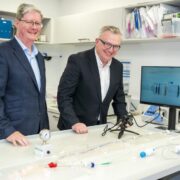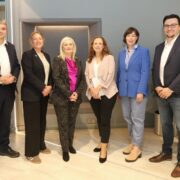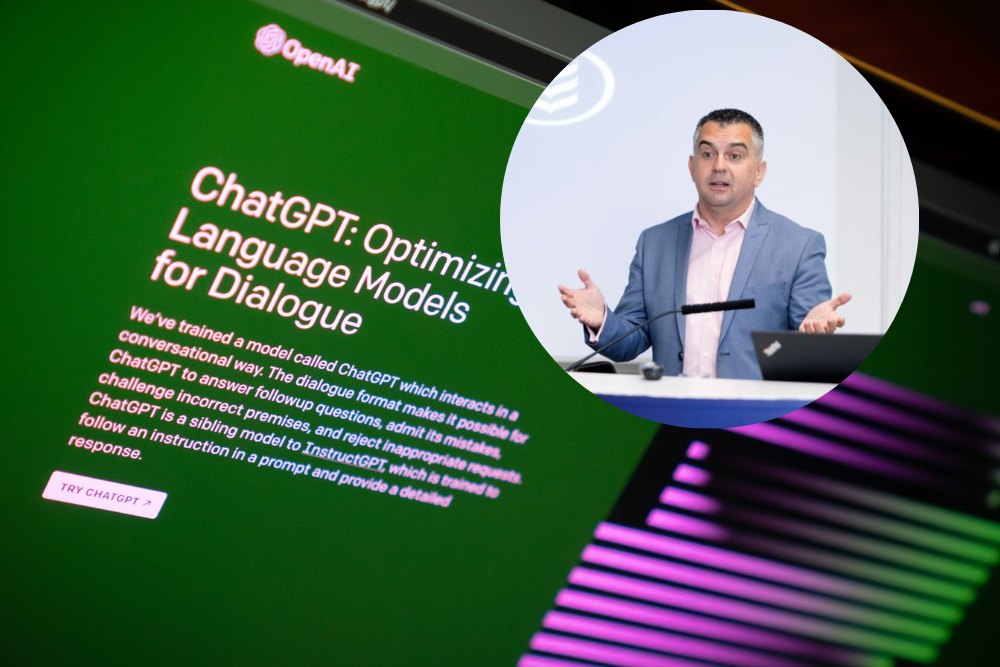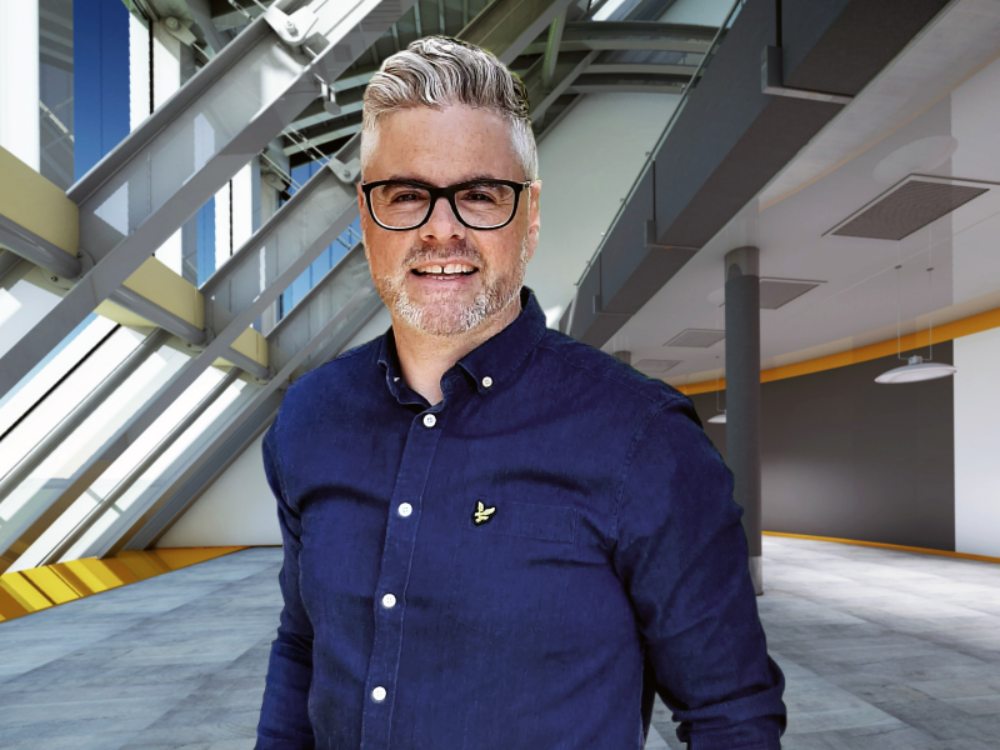Podcast Ep 249: Cognitive AI pioneer Dr Darryl Williams explains why Partsol is creating 60 jobs in Dublin and how he plans to upset the GenAI applecart.
There’s a strange phenomenon that is a bit of a problem across the AI world where whatever platform you’re using, it can make mistakes known colloquially in the tech world as hallucinations. These could include adding incorrect details or doctoring a photo incorrectly or embellishing a thesis you’re working on with inaccurate information.
When it comes to AI playing a role in serious applications like cancer research for example, or perhaps banking or insurance, such hallucinations are unconscionable. And that’s where Partsol comes in.
“What we have is an AI that doesn’t hallucinate, with an accuracy of either 99.9% or 100%. That in itself, anywhere in the world, would be earth-changing and disruptive to markets”
Partsol is the only company in the world employing AI Stem Cells to engineer their artificial intelligence, which is rooted in the pillars of foundational science to ensure its outputs are never compromised and never hallucinate.
Atai, the company’s flagship AI platform, is built on Absolute Truth algorithms that deliver forensic-grade precision and reliability, critical for high-stakes industries like finance, healthcare and legal services.
Last month it emerged that Florida-headquartered Partsol is to locate its new international headquarters in Dublin in a move that will generate 60 new jobs in its first year.
Citing the “noise” around AI in the US, the CEO of Partsol Dr Darryl Williams said the business is locating in Europe in order to find the oxygen to innovate, gain regulatory certainty under GDPR and to secure further investment.
The business, which has the potential to upset the AI applecart as we know it, raised $17.5m in a funding round in October last year.
Truthseekers, off to see the world
In an interview with The ThinkBusiness Podcast, Williams claims his company has developed AI that achieves what others cannot – absolute truth with 100% accuracy.
“What we have is an AI that doesn’t hallucinate, with an accuracy of either 99.9% or 100%. That in itself, anywhere in the world, would be earth-changing and disruptive to markets. But in the United States, the threshold of noise is so high that a small or mid-sized business with disruptive capabilities cannot get noticed.
“Additionally, when dealing with business outside the United States, there are very distinct data laws like GDPR. I realised that continuing to sludge through the United States trying to get noticed was futile. Many in the business community across multiple verticals started pushing me toward Ireland.
“The Irish business environment is inviting and vibrant. Plus, if we’re certified under GDPR, the global market opens to us. What started as a small subsidiary in Dublin with about five people is now planned as our global headquarters where we’re going to employ between 40 to 60 people in the next fiscal year. Everything running through Ireland is much more palatable than being run in the United States at this point.”
Williams says that what started as a business decision that became an overwhelming passion once he started getting to know what Ireland had to offer. Looking at the company’s plans for Dublin, Williams explained: “We’ll primarily be establishing business infrastructure – financial, billing, sales, and help desk functions. We will stand up some technology lines, though not many.
“We’ll also have a unique type of technology engineer called a ‘forward deployable engineer’ – someone who goes with the sales team to actually integrate a company into our neural network. These won’t be people sitting at desks just typing; they’ll be going to places like Switzerland for a pharmaceutical company with one month to incorporate all their processes into our neural network. It’s going to be very senior-level people with experience leading these efforts in Ireland.”
Making Absolute Truth unquestionable
He says marching in step with regulatory regimes like the EU’s GDPR (General Data Protection Regulation) will help to validate the technology.
On the question of seeking absolute truth through AI, Williams says it can be a double-edged sword. “Absolute truth used the right way can accomplish great good. Absolute truth used the wrong way can accomplish great evil.
“For us, GDPR is one less hurdle to worry about because the whole underpinning of GDPR is that you’re not going to take personal data and weaponise it. If you’re going for a loan or anything else, you as an individual sign a waiver allowing that company to check your creditworthiness, but once that’s done, that data goes away.
“We’re already taking away a lot of the weaponisation by saying what you’re going to get is truth – it’s not misinformation or someone’s idea about what is truth. The second piece, which is the GDPR piece, tells everybody that once the job is done, they can walk away knowing it’s not being archived and kept as a dossier on someone. It’s a two-way street, which we like.”
Williams explained that there are four verticals it is focusing on that require absolute truth: banking (FinTech), legal (LegalTech), health (HealthTech), and national security.
“In our Ireland headquarters, we’re specifically focusing on financial technology and legal technology. For FinTech, anyone dealing with risk, due diligence, know-your-customer protocols, or anti-money laundering can benefit. For LegalTech, it’s rapid e-discovery – discovering that critical piece of information.
“HealthTech will happen in the third quarter, likely through Ireland with a launch point probably in Switzerland we’re talking with organizations in Geneva. We’re also working with Trinity College in the area of AI as it intersects with cognitive problems like Alzheimer’s.
“While we can do more, we’re specifically marketing to these four sectors.”
So what is cognitive AI and what does Williams mean by applying stem cells as a metaphor for how the Absolute Truth engine functions?
“Right now, everybody is salivating and dumping hundreds of billions of dollars into generative AI. Generative AI is great if you want a graphic or a book report that’s 88% accurate. We use generative AI to write our reports.
“But cognitive AI goes deeper to our IP and the way the algorithms work. Generative AI is one stream. With cognitive AI, you have tens of thousands or millions of streams which aren’t completely parallel but touch each other in multiple areas, lending context to what’s happening. The system is always looking at both question and context.
“With generative AI, if someone claims they saw a cat on the moon, the system would take that thread and lump it into the wisdom of the masses. With our cognitive AI, since it’s grounded on what we call AI stem cells and science, the system knows that because of the coldness and vacuum of space, and the fact that there’s anatomically no way for cats to survive there, it’s impossible.
“The system will check if there were ever any moon launches with cats on their manifests, and when it finds there weren’t any, it will determine there’s no such thing as a cat on the moon. It does this in milliseconds and attributes the error, because knowing who’s introducing this kind of misinformation is valuable too.
“We use generative AI to write our reports, but it’s only allowed to use our data as it runs through our algorithms. It cannot use everyone else’s data. We’ve found it to be 100% accurate.”
GenAI vs cognitive AI
I asked Dr Williams about whether cognitive AI has the potential to overtake the currently “hot” area of generative AI.
“This is why we’ve been operating in stealth until today’s launch. These companies are dumping hundreds of billions of dollars into making their capabilities better, yet they’re struggling to monetise their generative AI because of the ‘garbage in, garbage out’ problem.
“If we come on board and say, ‘You’ve got 88% accuracy, but if you want 100%, you need to use our technology,’ that statement would alarm shareholders and investment banks that have invested billions in technologies that may never fully monetise. We are extremely disruptive.
“We’ve been advised by one group with connections to a major tech company to ‘circle our wagons as tightly as possible and get our buzz out as loud as possible’ because we’re either going to be the most prime acquisition target in the world, or they’re going to work overtime to kill our company. Whoever adopts our Absolute Truth technology could jump their generative AI from 88% to 100% accuracy.”
“Today is our first day out of stealth. It’s interesting that our [Dublin] office is in view of Google’s. I look over there and think, ‘That’s a pretty nice place. Maybe we’ll buy them,’” he adds in jest.
-
Bank of Ireland is welcoming new customers every day – funding investments, working capital and expansions across multiple sectors. To learn more, click here
-
For support in challenging times, click here
-
Listen to the ThinkBusiness Podcast for business insights and inspiration. All episodes are here. You can also listen to the Podcast on:
-
Spotify
-
SoundCloud
-
Apple






